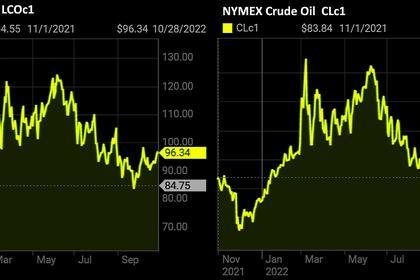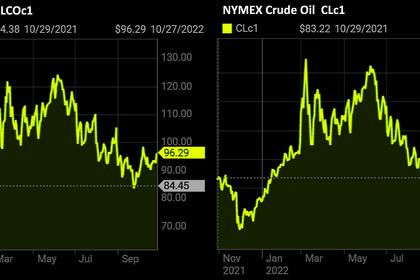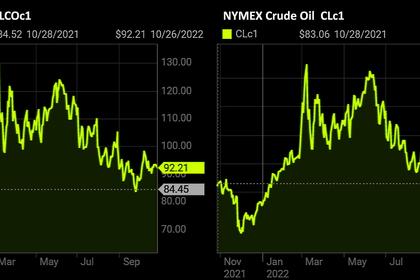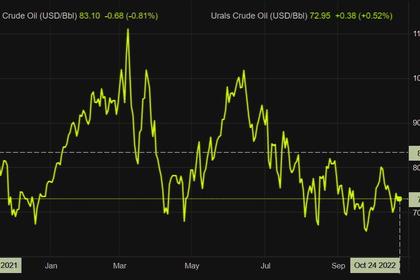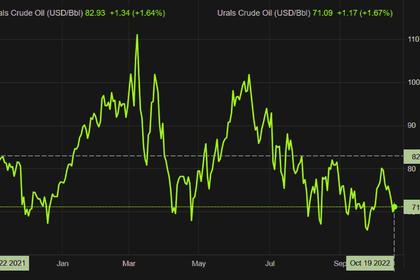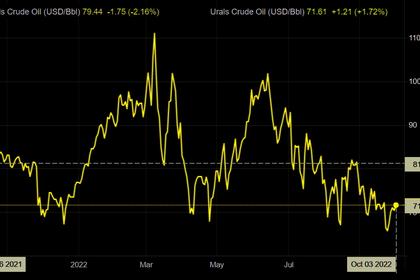
RUSSIAN OIL UNCERTAINTY
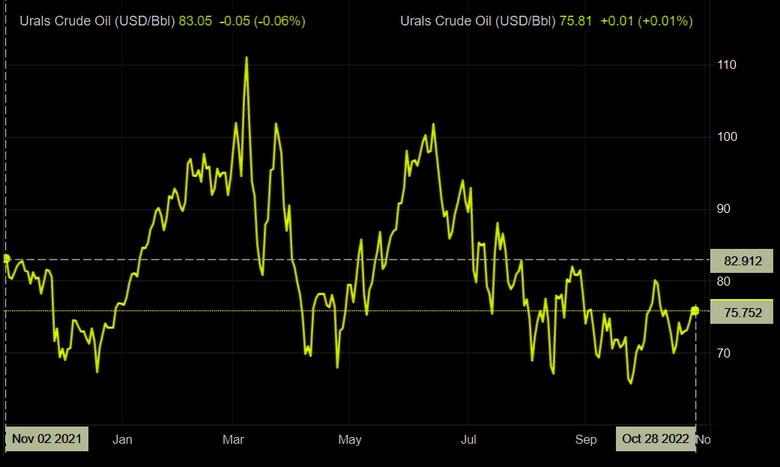
PLATTS - 28 Oct 2022 - Uncertainty surrounding the impact of the western ban and implementation of a price cap on Russian oil from Dec. 5 are giving pause to China and India's appetite for Russian crude oil, industry sources told S&P Global Commodity Insights.
Refiners and crude buyers from both these key Asian markets for Russian oil are unsure as to what to expect post Dec. 5 and this was reflected in the little to no trade information heard for December-loading Far East Russian barrels, traders said.
The crude oil market in Asia typically trades two months ahead of the loading cycle, which sees buyers and sellers in Asia trading December-loading barrels in October.
"Haven't heard much on [Far East] Russian [crude oil] for December [loading and] delivery [to China]. Everyone is waiting to see what the situation [will be post] Dec. 5," a China-based crude oil trader.
The G7 and EU are finalizing details of a price cap that is intended to be implemented with the EU ban on seaborne Russian crude imports on Dec. 5 and Russian oil products on Feb. 5, 2023.
As envisaged, the price cap would prohibit shippers, insurers and insurance brokers in compliant countries from providing services to oil buyers in other countries trading Russian oil above a specified price level, S&P Global earlier reported.
"Everything is not very clear now. There is no specific details on price cap clause [yet]," the same crude oil trader said. "Most companies [have] decided to wait and see [for December loading/arrival Russian barrels]."
No matter how the G7's price cap mechanism would function and to what extent the rules would allow Russian crude trades to continue, feedstock and logistics managers at two major South Korean refiners told S&P Global that they have no interest in buying Russian barrels post Dec. 5.
Shipbrokers, meanwhile, indicated that the Dec. 5 ban could mean more Russian, Chinese and shadow fleets such as those involved in movement of Iranian and Venezuelan crude, become active in moving Russian barrels.
"The way I see it, this trade will be exclusively done by Chinese, Russians and other ghost ships able to get P&I coverage," a Singapore-based shipbroker said, referring to protection and indemnity coverage for vessels.
But until more information on how the ban and price cap will work hits the market, most oil buyers and ship owners will tread with caution, traders said.
"Actually, Chinese [shipowners] have been winding down too. Heard even they want to minimize exposure after Dec. 5," the broker added.
Alternative grades could benefit
While Chinese oil trading companies were reportedly staying on the sidelines and have yet to offer December-loading Far East Russian barrels, some offers were heard from Russian oil firms, traders said.
Russian or Russian-related companies were heard offering December-delivery ESPO crude at premiums of around $2.50-$3/b against February ICE Brent futures, they said.
"Most [Chinese] state-owned trading companies have suspended offers [for December-loading Russian barrels] for the time being, but I think they will come back," another Chinese trade source said.
But for now, there have been very little uptake for December barrels, traders said.
"China and India are staying away from Russian crudes, but [also] buying [activity] are lesser overall," a Singapore-based crude oil trader said. "If the overall market fundamentals are weak, buyers may choose to seek supply alternatives from regional markets."
Some traders indicated that the uptake of alternative crudes, including Brazil's Tupi crude, from China's independent refiners have emerged.
At least three December-arrival Tupi cargoes were heard to have been bought by both independent and state-owned refiners, they said.
"Some teapots [independent refineries] bought Brazilian cargoes for December arrival, which is not normal this year so [there is some] excitement [in terms of] market sentiment," the first China-based crude oil trader said.
Appetites for Brazilian barrels this year have been supplanted by the availability of price-competitive Far East Russian barrels, which are in closer proximity to Chinese end-users, traders said.
Imports of Brazilian crude by independent refiners plunged 72% for the January-September period with only 3.08 million mt imported during the period versus 11.03 million mt in the corresponding period last year, S&P Global data showed.
In comparison, Russian crude imports by these refiners climbed 9% during the same period to 21,893 million mt, the data showed.
-----
Earlier:
